Abortion, euthanasia, and firearms bills drew thousands of submissions but their final impact on legislation left many disappointed. Daniela Maoate-Cox asks how MPs weigh up public opinion when making laws.
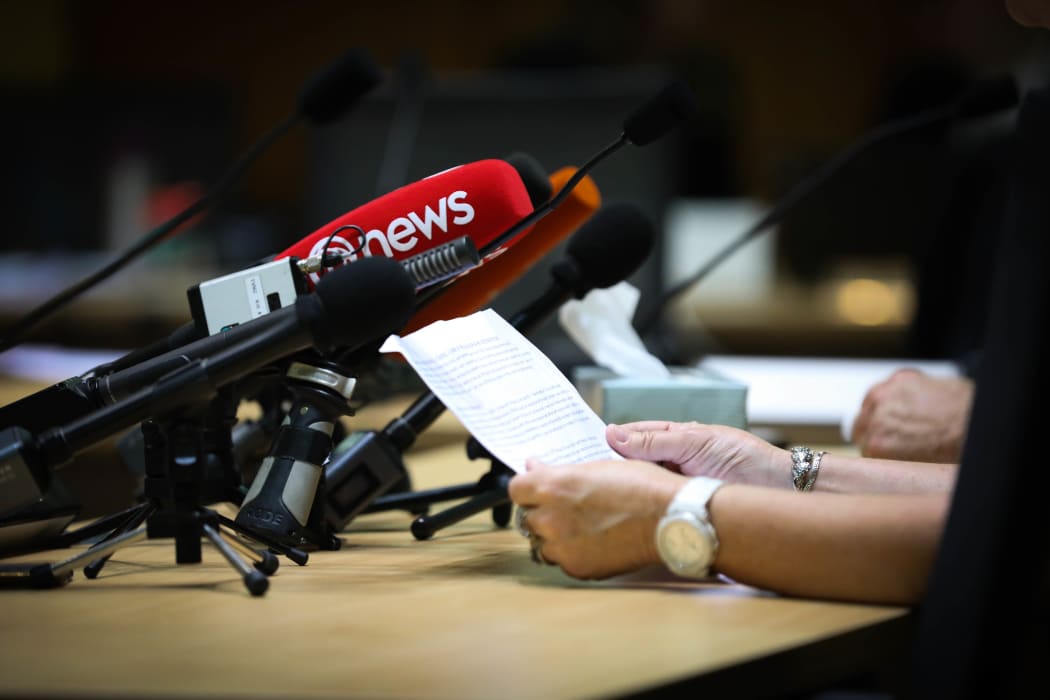
A submitter reads their written submission to a select committee and a lot of media microphones. Tissues on the table indicate the topic is sensitive. Photo: VNP / Daniela Maoate-Cox
A box of tissues and a glass of water are standard items on a select committee’s table.
There’s no way to know who will need to use them over the course of the day as a committee could hear from people on issues like breast cancer medication, loan sharks, suicide, or abortion.
Talking about your abortion or the death of a loved one to a room of MPs, media, and a live-stream on Facebook can take some courage.
Add to this the time preparing the submission, leave from work and potential travel costs and it’s no surprise people are angry when it appears their effort has been ignored.
But submissions are only one part of a bill's journey to become law.
“We’re not there to just do a democratic majority based on submissions,” the chair of the Finance and Expenditure Committee (FEC) Deborah Russell said.
“We’re there to go through the democratic process of weighing up the submissions, seeing if they present good arguments and responding to them.”
Select committees are smaller groups of about 10 MPs whose job it is to consider petitions, conduct inquiries and hear the public’s views on legislation being considered by Parliament.
A bill goes to a select committee after it passes its first reading in the House at which point the committee will usually ask for the public to have their say. After about six months it writes a report on the bill for rest of the MPs in the House to read.
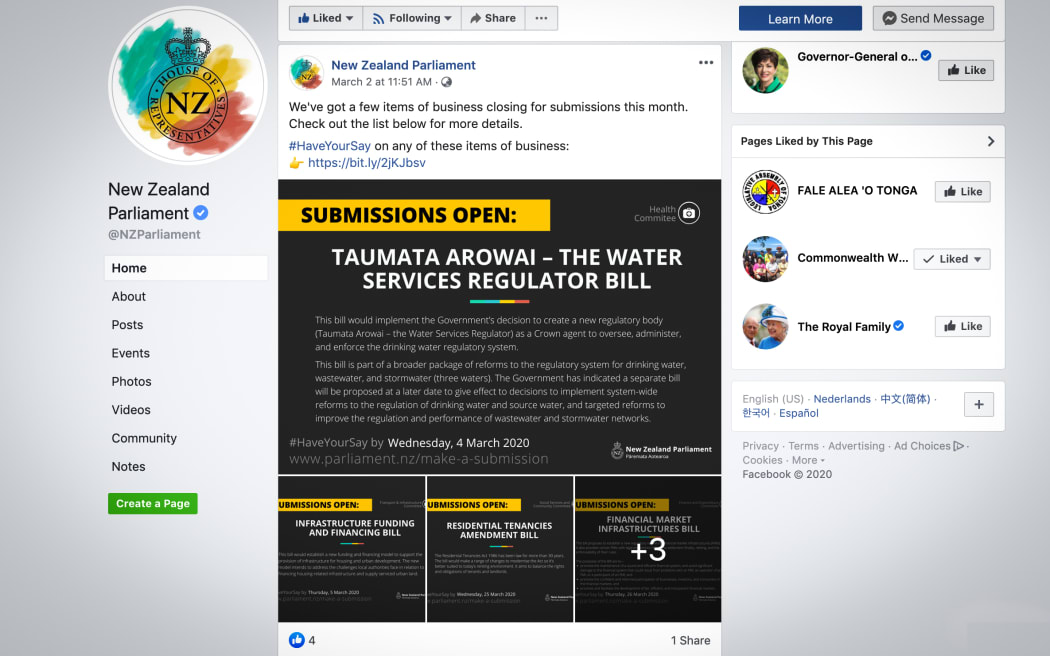
Parliamentary social media channels often call for people to submit their views on bills before select committees Photo: VNP / Daniela Maoate-Cox
The FEC recently reported back on the Arms Legislation Bill and recommended by majority that it be passed with some amendments.
The report drew complaints on social media from opponents to the Bill who felt they’d been ignored.
“Ninety-five percent of submissions oppose this legislation and you recommend it goes through. Nice work ignoring democracy,” wrote one commenter.
“So much for being listened to. What a joke.”
“You didn’t listen to a word that was said. Absolutely disgusting the way law-abiding citizens have been treated,” said another.
The Arms Legislation Bill aims to “improve public safety by adjusting legislative frameworks to impose tighter controls on the use and possession of arms”. This includes measures like a firearms register and powers for police to inspect how firearms are stored and secured.
Dr Russell said "yes we do listen" and the proof is in the changes their report recommends.
“For example, it seemed in the original bill that police could inspect a licence holder's safety arrangements, their gun storage locker and the like, without notice. Submitters said that was unfair and unreasonable so we changed it,” she said.
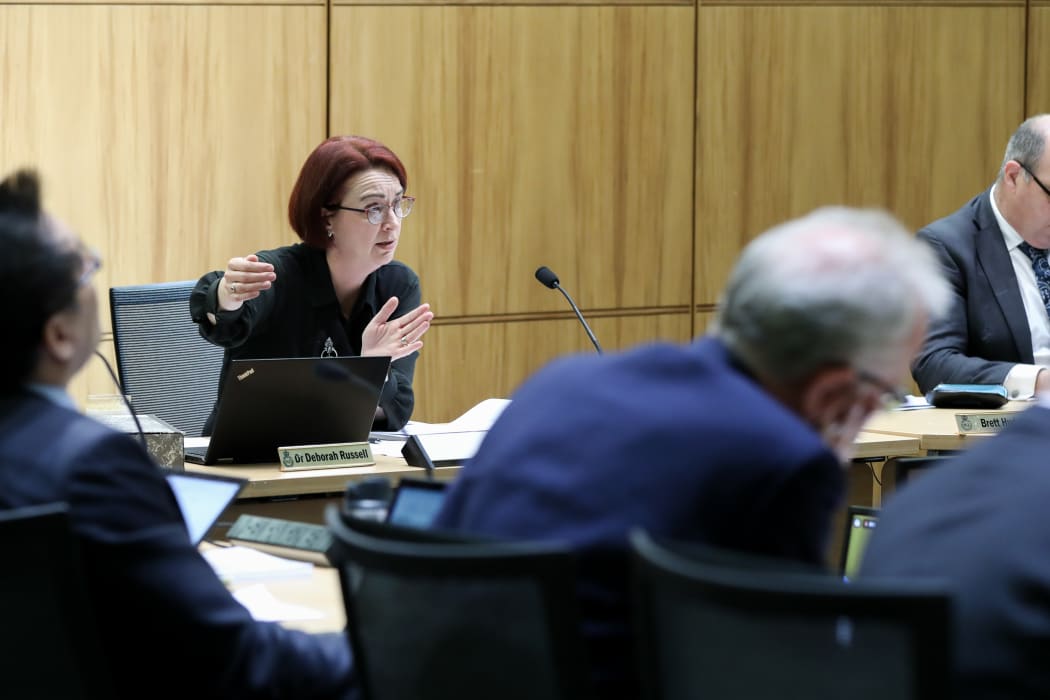
Labour MP Deborah Russell, Chairing of the Finance and Expenditure Committee explains an economic principle Photo: ©VNP / Phil Smith
The reality with submissions is that you can’t always get what you want.
“Many people put in submissions in support of the Bill and argued for stronger restrictions so Gun Control New Zealand wanted much stronger restrictions on firearms ownership and use, so I think they haven’t got everything they wanted and that’s just one of those things.”
There’s also a raft of other information sources MPs use when making decisions including their political parties but also their own knowledge and experiences.
“People do come into Parliament with particular expertise which can affect a bill,” said Dr Russell.
“I came in as a tax expert so I often have something substantive to say on tax bills and that’s fair enough”
The strength of someone’s argument can also have an impact.
“We sit there and we make arguments back and forth, not in the sense of shouting at each other but trying out ideas and saying ‘well have you thought of it this way, what about this issue?' so it’s a discussion rather than an argument.”
Not enough hours in the day
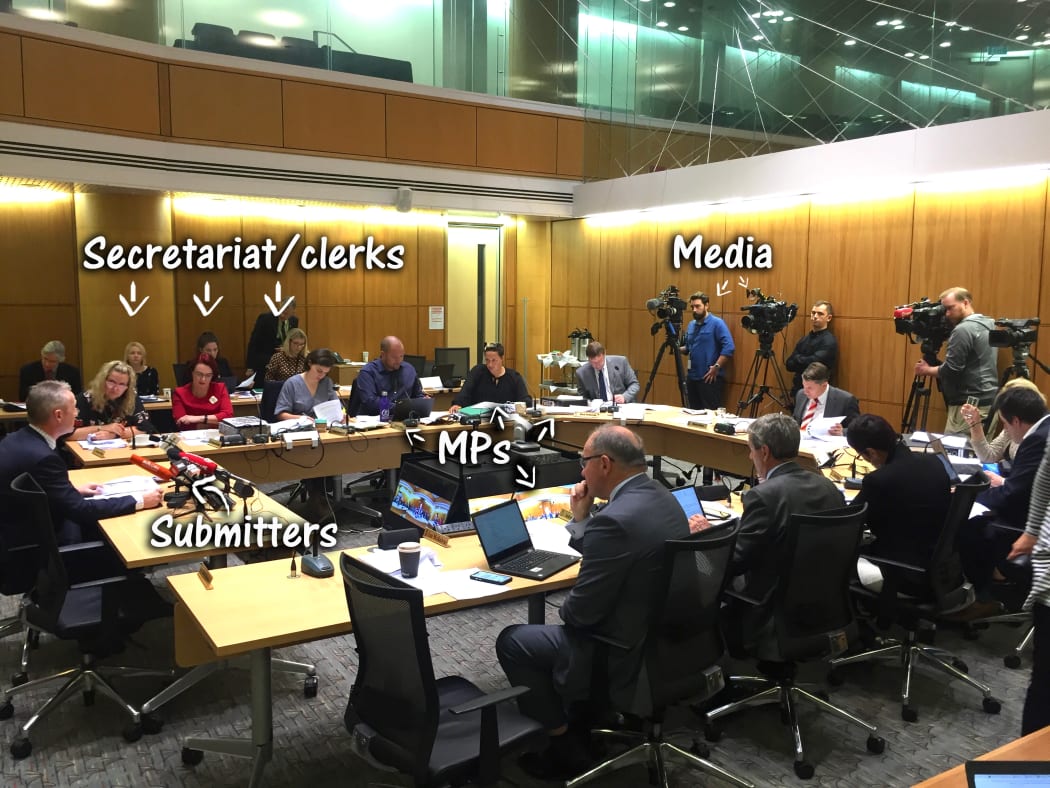
The Finance and Expenditure Committee hearing from Police Association President Chris Cahill. Photo: VNP / Phil Smith
Alongside the MPs in a select committee room is another table of people who are often shuffling papers, whispering in MPs' ears, and herding submitters around: they're the clerks of the committee.
"A clerk is an official who supports the Speaker and other MPs in their duties in the House and in select committees," said Clerk of the House David Wilson.
He said when there's a large amount of submissions, like the 39,159 received on the End of Life Choice Bill, then the committee has to make some decisions about who it hears from.
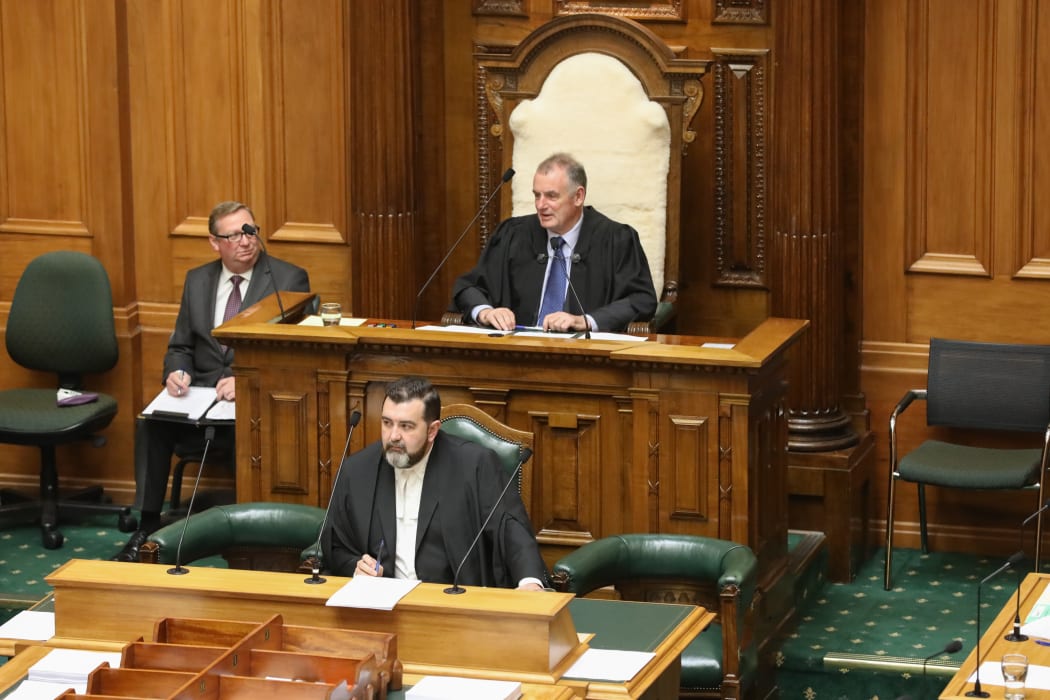
The Speaker Trevor Mallard and the Clerk David Wilson at their posts for Orals Questions Photo: VNP / Phil Smith
"We ask people if they want to appear before the committee or not in the first instance, not everybody does," he said.
"From those the committee has to pick a representative sample of the views, there's simply not enough hours in the day, even for a committee with six months to consider a bill, to hear from everyone who wants to be heard.
"I guess what the committee is trying to do is make sure it can hear all the different perspectives so it can weigh them up when it makes the decisions and unfortunately sometimes it means it can't hear from everyone who'd like to make a submission."
A clerk's role is administrative and they work for Parliament (all the MPs), not for Government (the Prime Minister and their Ministers).
Part of the clerk's role is to read every submission.

Assistant clerk James Picker clerking the Officers of Parliament Committee Photo: VNP / Phil Smith
"There are actually three groups of people who do read every submission," said Clerk Assistant James Picker.
The Clerks and the support staff for the committee who need to advise the committee on what's been received, departmental advisors and the Parliamentary Counsel Office (which drafts the legal language of a bill) and finally, the MPs he said.
"They might structure it in a way that they'll read the ones from the people they're hearing from first but through the course of maybe four and six months that the committee's got the bill they'll go through every submission.
Mr Wilson said there's another way you can tell.
"You can tell by the questions you get and the interaction you have so it's something people can judge for themselves."
Don't read it
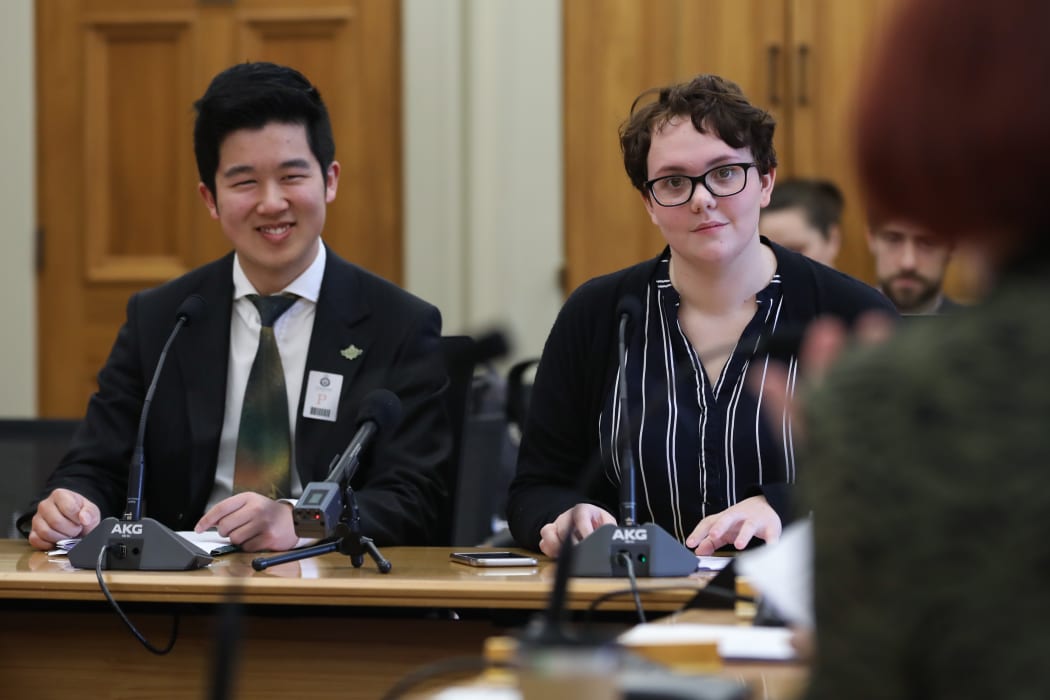
Youth MPs Shine Wu (left) and Lily Lewis (right) brief the Economic Development, Science and Innovation Select Committee on their report from Youth Parliament 2019. Photo: VNP / Phil Smith
Officials and lobbyists are familiar with submitting but when the submitter is motivated to speak up for personal reasons the experience can be intimidating.
Mr Picker said people often don't realise the committee has already read their submission and they don't need to read it aloud.
"It can be quite nerve-wracking talking to a select committee so people will go back to 'this is what I wrote' and start to read it," he said.

The Education and Workforce Select Committee during an Estimates Hearing for Education. Photo: VNP / Phil Smith
"That's not what the committee often are after, they want to talk to the person. And if it's a particularly emotive issue, that's fine, that's ok to be passionate about something, that's what it's all about and if that is how you feel, take your time, take a deep breath, committees will take their time with you, they want to hear what you've got to say."
Dr Russell agrees.
"I know people get quite nervous about coming in and making a submission but actually most of the time we welcome people, we want to see them there and we do our best to set them at ease," she said.
"I guess if people come in telling us that we're idiots and fools it's a little hard to take them seriously. But equally, most of the time we do try very, very hard to operate with respect for the submitters; even if we don't agree with their views, their views deserve to be heard."
Information on how to make a submission can be found on Parliament's website here and a list of committees currently calling for submissions can be found here.


